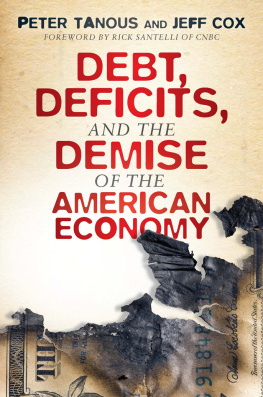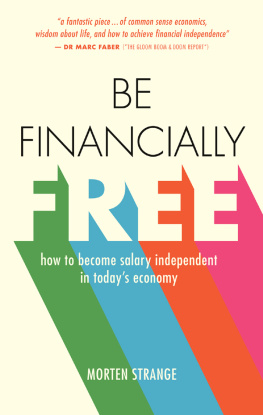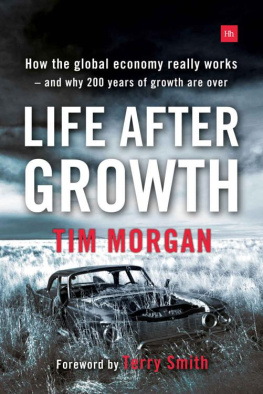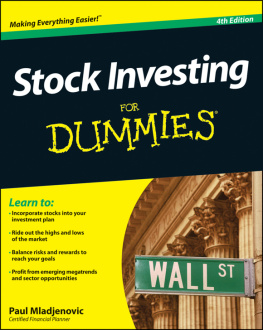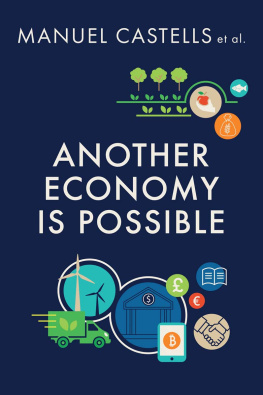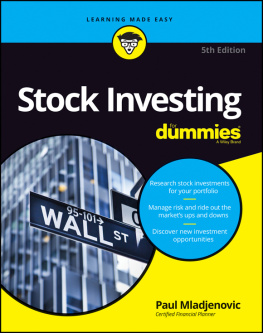Copyright 2011 by Peter Tanous and Jeff Cox. All rights reserved.
Published by John Wiley & Sons, Inc., Hoboken, New Jersey.
Published simultaneously in Canada.
No part of this publication may be reproduced, stored in a retrieval system, or transmitted in any form or by any means, electronic, mechanical, photocopying, recording, scanning, or otherwise, except as permitted under Section 107 or 108 of the 1976 United States Copyright Act, without either the prior written permission of the Publisher, or authorization through payment of the appropriate per-copy fee to the Copyright Clearance Center, Inc., 222 Rosewood Drive, Danvers, MA 01923, (978) 750-8400, fax (978) 646-8600, or on the Web at www.copyright.com. Requests to the Publisher for permission should be addressed to the Permissions Department, John Wiley & Sons, Inc., 111 River Street, Hoboken, NJ 07030, (201) 748-6011, fax (201) 748-6008, or online at www.wiley.com/go/permissions.
Limit of Liability/Disclaimer of Warranty: While the publisher and author have used their best efforts in preparing this book, they make no representations or warranties with respect to the accuracy or completeness of the contents of this book and specifically disclaim any implied warranties of merchantability or fitness for a particular purpose. No warranty may be created or extended by sales representatives or written sales materials. The advice and strategies contained herein may not be suitable for your situation. You should consult with a professional where appropriate. Neither the publisher nor author shall be liable for any loss of profit or any other commercial damages, including but not limited to special, incidental, consequential, or other damages.
For general information on our other products and services or for technical support, please contact our Customer Care Department within the United States at (800) 762-2974, outside the United States at (317) 572-3993 or fax (317) 572-4002.
Wiley also publishes its books in a variety of electronic formats. Some content that appears in print may not be available in electronic books. For more information about Wiley products, visit our web site at www.wiley.com.
Library of Congress Cataloging-in-Publication Data
Tanous, Peter J.
Debt, deficits, and the demise of the American economy / Peter J. Tanous and Jeff Cox.
p. cm.
Includes index.
ISBN 978-1-118-02151-4 (hardback); 978-1-118-07202-8 (ebk); 978-1-118-07203-5 (ebk); 978-1-118-07204-2 (ebk)
1. InvestmentsUnited States. 2. Stock price forecastingUnited States. 3. Business forecastingUnited States. 4. Financial criseUnited States. 5. United StatesEconomic conditions2009- I. Cox, Jeff, 1951- II. Title.
HG4521.T319 2011
330.973dc22
2011007560
ISBN 978-1-118-02151-4 (cloth); 978-1-118-07202-8 (ebk); 978-1-118-07203-5 (ebk); 978-1-118-07204-2 (ebk)
To: Ann, Chris, Helene, Will, Paul, Julie, Olivia, Isabella, Lilly, & Ringo
Peter Tanous
To: MaryEllen, for always believing; and Mom and Dad, for always being there
Jeffrey Cox
Foreword
Americans historically have always risen to meet every challenge. The issues of debt and deficits necessitate substantial changes in how our economy is managed. Many of the changes that need to be made are known to our political class. Many politicians, past and present, have not exhibited the will to tackle our looming budget crisis. Political careers last longer when the truly difficult issues are kicked down the road to future leaders. But as evidenced by the huge fiscal conservative movement spreading across the country since February 2009, Americans have the will to make sacrifices to strengthen our country and thus guarantee a prosperous future for our children and grandchildren. Debt, Deficits, and the Demise of the American Economy will better arm the reader to understand the corrective measures we need to insist on by our political leaders to address the issues that challenge our legacy of exceptionalism.
Peter Tanous and Jeff Cox in Debt, Deficits, and the Demise of the American Economy afford the reader a concise, easy-to-read account of how the United Statesand much of the globehas arrived at a tenuous crossroads of debt and unsustainable spending. The reader takes a journey through the history of how years of misguided and underfunded policies, here and abroad, have caused an historic addiction of central banks to low interest rates and easy-money cures for bubbles caused by low rates and easy money.
What I enjoyed most about Debt, Deficits, and the Demise of the American Economy is the use of unvarnished facts to quantify how mountains of debt will be an insurmountable obstacle to Americans most cherished dynamic, a higher standard of living for successive generations, if not addressed expeditiously. Messrs. Tanous and Cox illustrate how flawed policies in banking, housing, taxation, and regulation all contributed to the credit crisis of 2008. More importantly, how the growing gap between what government collects and what it spends has created a negative spiral of corrosiveness that threatens the financial solvency of global economies big and small.
The methodologies of the Office of Management and Budget, used by our leaders to handicap solutions to lowering long-term deficits, are broken down into easy-to-understand assumptions. The reader is given a simple view of how guesses of future inputs like growth, inflation, and interest rates may not reflect future realities. Even small miscalculations of such variables can lead to much larger deficits.
Simple questions like how an average American defines inflation versus a how a central banker does are broken down and addressed not only in terms of pricing realities but also in terms of investing realities. Is gold a good hedge against policies that weaken the purchasing power of our currency? How does the risk of a weaker dollar affect investment strategies? Can we invest during times of economic crisis profitably, effectively? All these questions are addressed in a fashion that strips away the nonessential economic jargon, leaving the readers better armed to protect their personal finances during these trying economic times.
Rick Santelli
CNBC On-Air Editor and former member of the Chicago Board of Trade and Chicago Mercantile Exchange
Introduction
The problem we now face is the most extraordinary financial crisis that I have ever seen or read about.
Former Federal Reserve chairman Alan Greenspan (August 7, 2010, interview in the New York Times )
At age 84, Mr. Greenspan has been around the block a few times and is drawing on a lengthy history.
The United States is heading toward a financial catastrophe that will paralyze the country and lead to an extended period of economic mayhem and distress. The problems are not about politics anymore, not about Republicans and Democrats, not about the Fed or the Treasury or the shaky euro. It is too late for any practical initiative to stop it.
To reduce this to its simplest elements, the pending economic catastrophe is about debt, deficits, and inflation. We hope to demonstrate that the rising and unsustainable debt in Europe and the rising deficits in the United States will lead to potentially catastrophic consequences. At the top of the list is our contention that severe inflation lies ahead. We also intend to point the way to some investment strategies to help counter the negative effects of the financial crisis that is coming.
This book tells a story about what has happened to get us where we are, how the crisis is unfolding, and how it will likely end with a stock market crash. The timing is always difficult to predict, but the direction of the crisis is not. The trend is predictable because the crisis is proceeding along a linear path.

